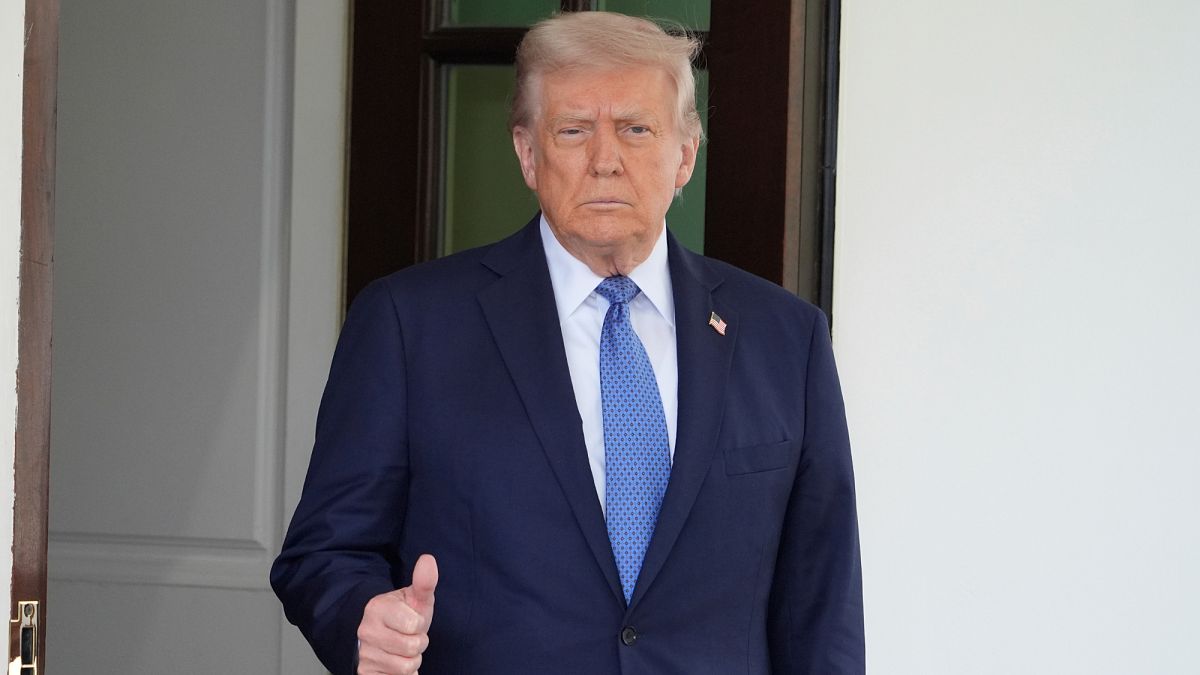Published •Latest updates
US President Donald Trump said on Thursday that the United States and China are conducting trade negotiations after Beijing denied information about the dialogue.
“They held a meeting this morning.” Trump told reporters at a meeting with the Prime Minister of Norway at the White House. However, he refused to name the Chinese actor who participated in the meeting, adding: “It does not matter who they are.” Perhaps we will reveal that later, but they held this morning, and we met China. “
Earlier in the same day, the official representative of the Ministry of Trade in the People’s Republic of China said Yadon said that there is currently no trade negotiations between China and the United States.
“China has noticed some modern messages in foreign media, He said he was at a press conference. – As responsible for foreign trade and economic relations, I would like to emphasize the absence of ongoing trade negotiations between China and the United States. Any data on progress in commercial negotiations between China and the United States is purely speculation and has no actual basis. “
On Tuesday, Trump announced plans to reduce China’s fees “Important, but they will not be zero.” Currently, the United States provides 145 % import duties on Chinese goods, and the People’s Republic of China in response to 125 % of American products. Beijing has also provided other measures, including restrictions imposed on the export of rare minerals in the United States and the end of Boeing aircraft purchases. On Wednesday, the Wall Street Journal reported that the Trump administration is considering reducing duties against China to 50-65 %.
He said that the answer to a question about Trump’s statements about a possible decrease in duties, he said:
“If the United States really wants to solve problems, it must listen to the rational opinions of the international community and the various internal sectors, to cancel all unilateral duties against China and seek to resolve differences through an equal dialogue.”
Later, on Thursday, Trump wrote on the social truth site:
“Boeing should announce the failure to pay China for not taking the final aircraft that China had to buy. This is just a small example of what China did from the United States for many years …”
He also wrote:
“Fentanil continues to go to our country from China, via Mexico and Canada, killing hundreds of thousands of our people, and this is better to put an end, now!”
In February, Trump was overwhelmed by the Chinese Fintanel trade by 20 %, and a 25 % fee imposed on the Mexican.
Promotional offers grow on the background of signs of disposal of the trade war
However, Trump’s clear refusal of China and alleviating his position regarding the head of the Federal Reserve System, Jerome Powell led to euphoria in global stock markets, which grew on Thursday a fourth consecutive commercial day. This week, the risky mood is carefully recovered, and all the world’s main indicators appear to be ready to complete a week in a positive note.
The shares of technological companies against Wall Street headed against the background of the continuous season of corporate profits. The S&P 500 index increased by 2 % on Thursday, as it reached the highest level as of April 3 – the day on which Trump announced the provision of the facilitator response fees. A week later, he announced the suspension of 90 days for all countries with the exception of China.
European markets showed special stability: EURO Stoxx 600 and German Dax shows growth for the second week in a row. Now DAX is only 6 % less than the historical maximum achieved in March.
Promotional offers have grown all over Asia on Friday. The Japanese Nikkei 225 index increased by more than 2 %, and the South Korean KosPI – by more than 1 %. According to reports, US Finance Minister Scott held negotiations with both countries. Meanwhile, the Hong Kong Hang Singh index increased by 1.5 %, after playing most of the losses it incurred earlier in April. The Popular Bank of China has confirmed its commitment to maintaining a moderate free monetary policy to support economic growth in the context of trade tension.










Leave a Reply